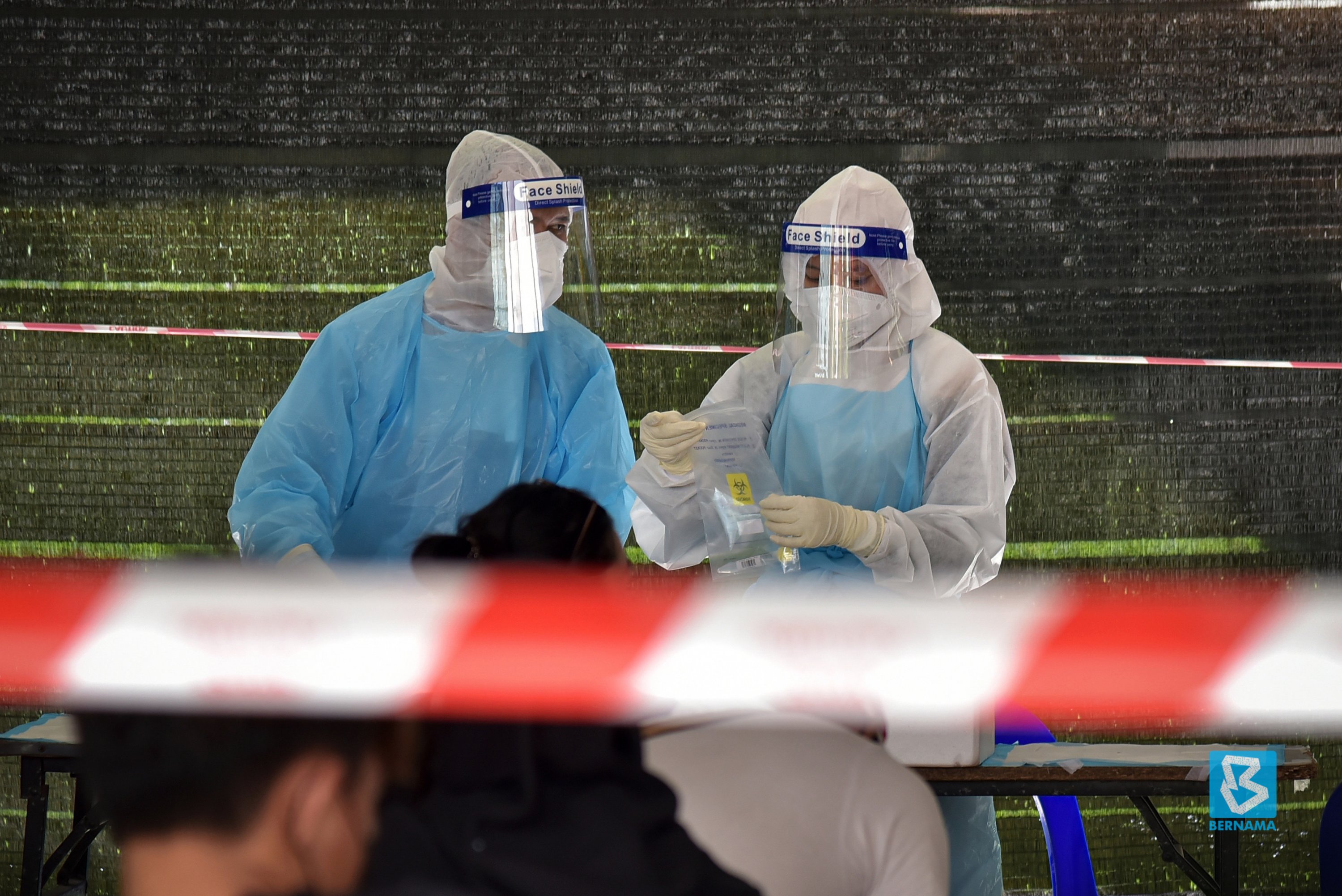
Medical personnel collect swab test samples for Covid-19 screening. – Bernama photo
KUCHING (June 17): The number of Covid-19 red-zone districts in Sarawak have increased to 30 with the addition of Matu District, after it recorded 57 local infections in the last 14 days, the Sarawak Disaster Management Committee (SDMC) said.
The other red-zone districts are Julau, Lundu, Telang Usan, Song, Sebauh, Kabong, Dalat, Bau, Meradong, Lubok Antu, Beluru, Asajaya, Tanjung Manis, Tatau, Bukit Mabong, Sri Aman, Pakan, Kanowit, Selangau, Subis, Mukah, Sarikei, Samarahan, Serian, Kuching, Kapit, Bintulu, Miri and Sibu.
Three districts namely Marudi, Betong and Tebedu remain as orange zones while the yellow-zone districts are Simunjan, Saratok, Pusa, Belaga, Lawas, Daro and Limbang.
There are no green-zone districts in Sarawak currently, according to SDMC statement.
The Ministry of Health categorises a district with no Covid-19 cases as a green zone while one to 20 local infection cases recorded in a district over a two-week period are classified as yellow zone. Districts with 41 and more cases will be designated as red zones while those with 21 to 40 cases are classified as orange zones.
On another issue, SDMC said since March 18 last year, the police have now issued a total of 7,897 compounds.
These include the latest 32 compounds issued in 10 districts namely Kuching (13), Saratok (4), Lawas (4), Dalat (3), Mukah (3), Bintulu (1), Miri (1), Sibu (1), Kota Samarahan (1) and Serian (1).
A total of 14 compounds were issued to individuals who were found loitering in public areas past 10pm without valid reasons; nine for carrying passengers in a vehicle over the permitted limit; four for not wearing face masks; two for failing to ensure compliance with 30 per cent workers capacity attendance; and one each for heading out of Enhanced Movement Control Order (EMCO) area; failure to provide hand sanitizer/body temperature scanner and customers’ registration book; and selling alcoholic beverages that are not in the category of essential items.
